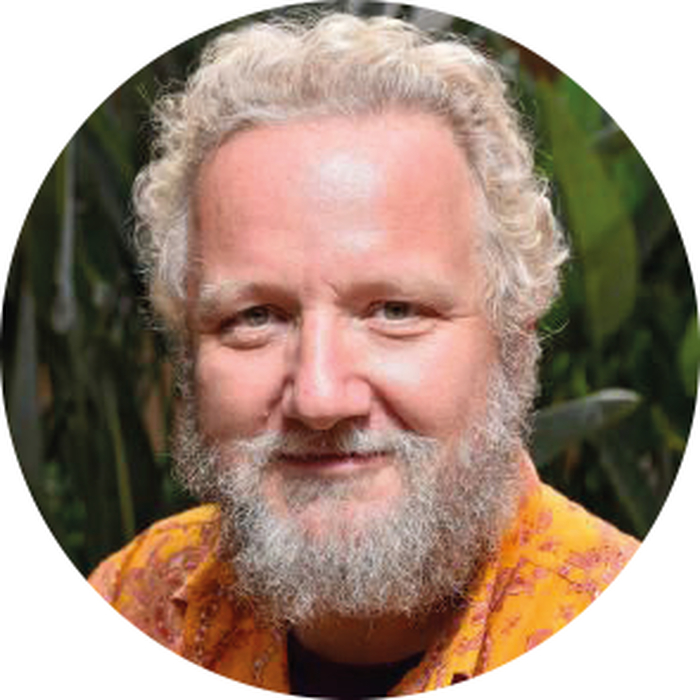 Patrick Worms
Patrick Worms
CIFOR-ICRAF/IUAF, Belgium
KEY NOTE SPEAKER
Patrick, a Cambridge-educated molecular geneticist, represents CIFOR-ICRAF - the Centre for International Forestry Research and World Agroforestry - to policy makers, donors and corporate partners in Europe and beyond. Patrick’s interests sit at the nexus of Earth restoration and human security. His firm conviction, drawn from decades of pioneering research, is that marrying traditional and advanced land management knowledge is the most promising pathway to rural prosperity, a giant help to mitigate our impact on biodiversity and the atmosphere and, tantalizingly, peace in a warming world. Patrick has been active at the science-policy interface since the late 1980s, with a start teaching biology in the Hindu Kush. As a young European official, he pioneered a new way of using communications to deal with the environmental legacy of communism across the former Soviet Union, before leaving for the private sector. There, he engaged with the disastrous environmental legacy of China’s Great Leap forward through an effort which became the first large-scale private-sector investment in tree planting for watershed remediation in that country. Patrick serves as President of IUAF, the International Union of Agroforestry. He also serves as the Vice-President of the European Agroforestry Federation; a Director of the Savanna Institute; a member of the Steering Committee of International Land Lives Peace; a Senior Fellow of the Global Evergreening Alliance; and a member of several advisory boards. He is the very happily married father of four children ranging from 7 to 31 years old and lives in Waterloo, Belgium.
 Michael A. Gold
Michael A. Gold
University of Missouri Center for Agroforestry, USA
Dr. Michael A. Gold is a Research Professor and Associate Director at the University of Missouri Center for Agroforestry (UMCA) (1998-present). Dr. Gold has been active in agroforestry research, education, and outreach for the past 40 years. He was a founding member and first President of the Association for Temperate Agroforestry (AFTA) (1993), served on the editorial board of the Agroforestry Systems journal for 11 years, as Consulting Editor (1992-1998) and Associate Editor (1998-2003), and was a IUFRO Temperate Agroforestry Working Party ((1.15.01) member and coordinator (1993-2002). He has a B.S. in Forestry (1975) and a Ph.D. in Forest Genetics and Agroforestry (1984) from Michigan State University (MSU). At MSU (1984-1998) his research was focused on tropical agroforestry, primarily on fodder trees and indigenous knowledge. He has taught agroforestry courses since 1987 and since 2011 teaches the graduate level, agroforestry overview core course as part of the Center’s, 100% online, agroforestry MS and graduate certificate program. He is the Agroforestry Graduate Emphasis Area Coordinator for the MU School of Natural Resources and advises 18 online agroforestry master’s graduate students. He was the lead PI in the establishment of the Center’s annual Agroforestry Academy back in 2013. Since 1998, his research has focused on the selection and improvement of Chinese chestnut and the development of market and consumer knowledge for multiple specialty crops (e.g., chestnut, elderberry, pawpaw).
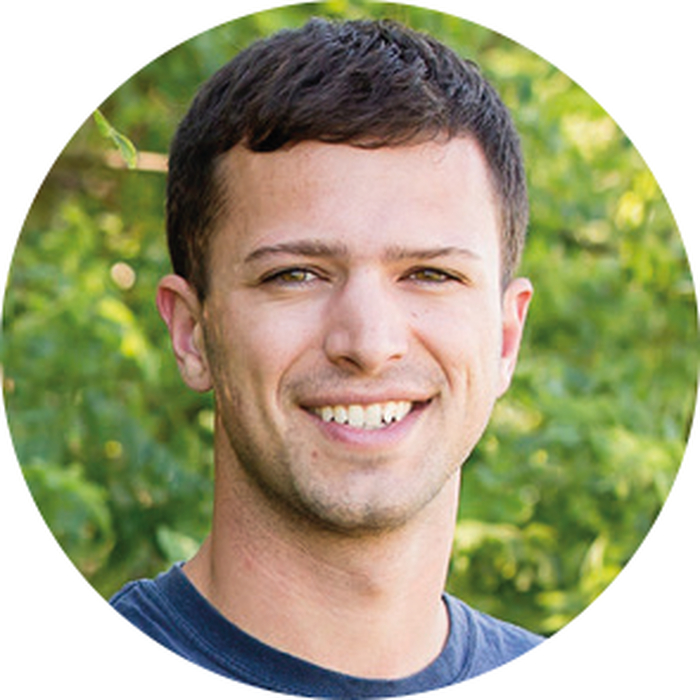 Kevin Wolz
Kevin Wolz
Savanna institute, USA
Paper Title: Agroforestry innovation & adoption in the Midwest USA - 28. 05. 2024
Kevin formerly led the Savanna Institute as its Co-Executive Director. In 2022, he joined Canopy Farm Management as its Chief Executive Officer. Canopy is a business launched by the Savanna Institute and Grantham Environmental Trust to expand agroforestry services in the Midwest. While CEO of Canopy, Kevin continues his contributions to Savanna Institute’s mission as a lead scientist. Keven’s academic background has blended biology, agroecology, and engineering, with a focus spanning a wide range of methods and applications – from biogeochemical cycling and ecological monitoring to biophysical modeling and economic analyses. He was the founding Chair of the Institute’s Board of Directors. Kevin enjoys experimenting and learning on his own two agroforestry farms on long-term-leased land in Champaign County, IL.
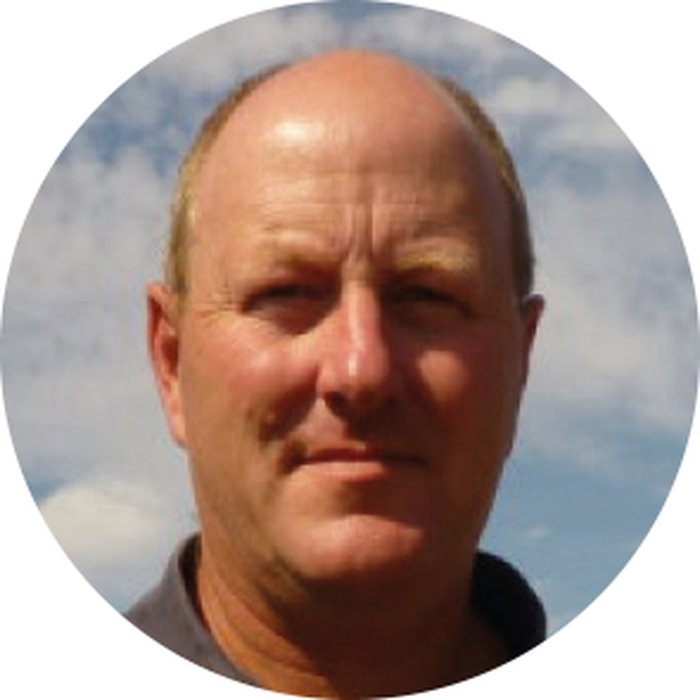 Stephen Briggs
Stephen Briggs
Peterborough, Cambridgeshire, United Kingdom
Paper Title: Agroforestry – How farmer experiences shape tomorrow’s practise and policy - 29. 05. 2024
Stephen is a first generation farmer and has been farming organically for over two decades, building up from 22 acres (9 hectares) to 576 acres (233 hectares). He grows organic cereals - wheat, barley and oats - for seed and gluten-free markets. He has also grown organic vegetables, including broccoli, cauliflower, beetroot and leeks. In 2009 he planted 2,400 apple trees within his cropland to create the largest commercial agro-forestry system in the UK. He makes and sells organic apple juice and, in 2017, converted a farm building into a shop, cafe and education centre.Stephen is passionate, and extremely knowledgeable, about the resource upon which all farming depends - soil. He has an MSc in Soil Science and he’s Head of Technical Development at Innovation for Agriculture (a charity which communicates the latest research and emerging technologies to farmers, so they can run productive businesses while improving the environment and animal welfare) and is a non-executive director of the UK's Agriculture and Horticulture Development Board (AHDB). He’s a member of expert steering groups at the Sustainable Soils Alliance and DEFRA’s new Environment Land Management Scheme (ELMS) and DEFRA's Lowland Peat Taskforce. He’s also an ambassador for the Woodland Trust and runs an independent organic farm business consultancy, Abacus Agriculture.
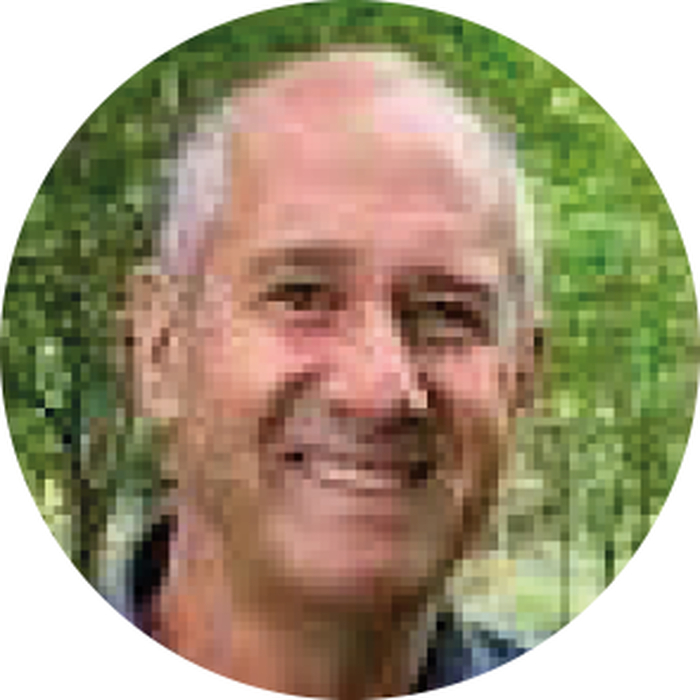 Rowan Reid
Rowan Reid
Australian Agroforestry Foundation /University of Melbourne, Australia
Paper Titule: Is it too late to put agroforestry back on the D&D track?
In 1985, at the age of just 24, Rowan co-authored the book Agroforestry in Australia and New Zealand. He has since been a leader in the development of agroforestry education and extension programs in Australia having developed the first undergraduate course in agroforestry in Australia and the very successful Australian Master TreeGrower Program. More than 2000 landholders and their supporters across Australia have completed the 8-day MTG course many of whom are now leaders in the development of multipurpose tree growing within their region and nationally. Rowan was awarded the 2000 Eureka Prize in Environmental Education for his work on the program. In 2007, Rowan extended the MTG program to include training for Peer Group Mentors, a concept first introduced by the Otway Agroforestry Network of which he is a founding member. After more than 20 years as an academic at the University of Melbourne, Rowan is now working privately on his own farm and as a consultant. Rowan is particularly interested in sharing ideas about how to involve private landholders in multipurpose forest management and the silvicultural management of forests on farms for high quality timber. Rowan has worked in many countries delivering training for professional and farmers and presenting at conferences and workshops. For more infomation about other programs such as the Master TreeGrower please go to the Australian Agroforestry Foundation web site. Rowan as authored many books, conference papers and scientific papers. His latest book is: Heartwood: The art and science of growing trees for conservation and profit.
 Christian Dupraz
Christian Dupraz
National Research Institute for Agriculture, Food and Environmen, France
Paper Title: When your kids are much smarter than you: a story of EURAF from the start - 28. 05. 2024
Director of research at INRAE, the French national Institute for Agronomical and Environmental Research, Christian Dupraz initiated research on agroforestry systems in the 90’s when this topic was almost unknown in temperate countries. He designed and managed the Restinclières Agroforestry Platform (45 ha of agroforestry experiments), that is probably the oldest agroforestry experiment in Europe with a continuous monitoring since plantation. He is involved in the numerical modelling of agroforestry systems to assess their resilience to climate change. More recently, he extended the concept of dual systems to agrivoltaism (photovoltaic panels and crops). He is currently the Editor in Chief of the “Agroforestry Systems” Journal. Christian was the founding President of the French Agroforestry Association (AFAF), the European Agroforestry Federation (EURAF), and the International Union of Agroforestry (IUAF).
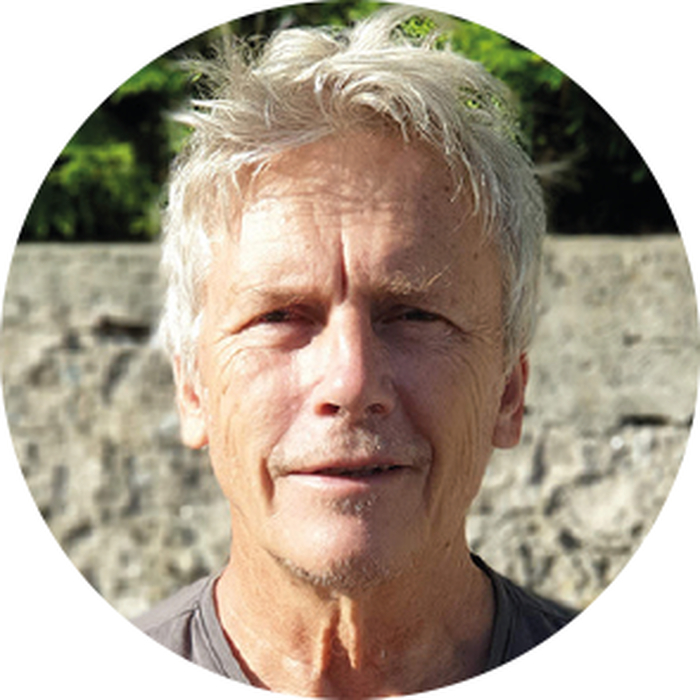 Joachim Milz
Joachim Milz
ECOTOP, Bolivia
Paper Title: Employing the principles of life in dynamic agroforestry practice - 28. 05. 2024
Joachim is the President of ECOTOP. He studied tropical agriculture at Witzenhausen Germany and holds a master´s (Technical University of Berlin) and doctorate degree (Humboldt University of Berlin). Since 1982 he is living in Bolivia and in 1996 he started converting his farm in the low lands of Bolivia into Successional Agroforestry, induced and supported by Ernst Götsch. He is a shareholder of ECOTOP SRL and ECOTOP Swiss and co-founder of ECOTOP Foundation. His mission is spreading dynamic agroforestry all over the world to reconcile human activities with the principles of life.
 Jo Smith
Jo Smith
MVRAC, Portugal
Paper Title: What can biodiversity do for agroforestry? - 29. 05. 2024
Jo is a Senior Researcher at the MV Agroecology Research Centre in southern Portugal. Between 2010 and 2020 she built up the agroforestry programme at the Organic Research Centre in the UK, investigating novel agroforestry systems such as combining short rotation coppice with livestock, as well as how to make better use of existing woody resources such as hedgerows by introducing a productive element such as bioenergy and tree fodder. Research covered many aspects, from agroforestry impacts on biodiversity, soil health, productivity and economics to working closely with pioneering farmers, such as the late Martin Wolfe at Wakelyns Agroforestry, to consider more practical questions around design, establishment and management of agroforestry. Through involvement with several European projects (AgForward, AFINET, SustainFARM, AGROMIX, DIGITAF) Jo has built strong links with researchers across Europe, further supported by her involvement in EURAF, as a founding member, country representative and a short stint on the Executive Board. She is also an associate editor of the Agroforestry Systems journal. Now working in a very different context where climate change is strongly impacting agriculture, her focus is on the role of agroforestry in buffering weather extremes and how to increase resilience of these systems by increasing diversity.
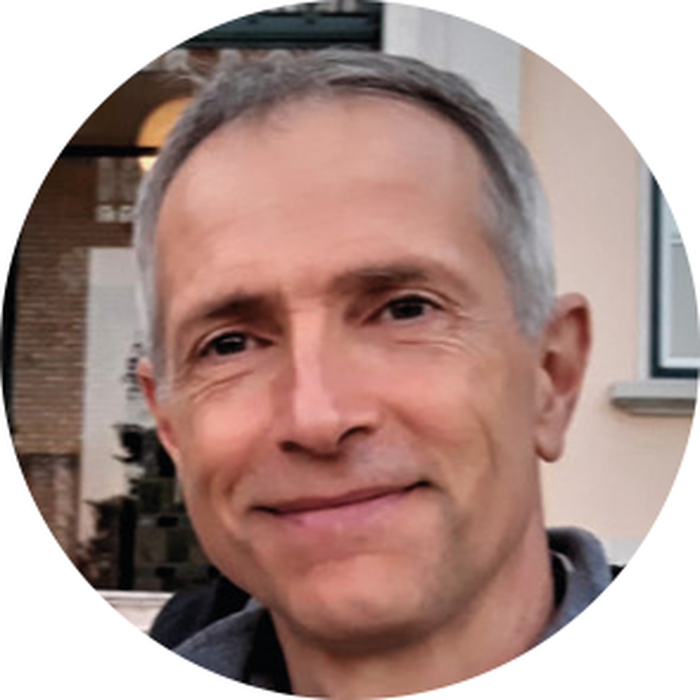 Adolfo Rosati
Adolfo Rosati
Council for Agricultural Research and Economics (CREA), Research Centre for Olive, Fruit and Citrus Crops, Italy
Paper Title: Fruit-tree-based silvopasture: potential and limitations - 29. 05. 2024
Adolfo Rosati has been a research scientist at the Council for Agricultural Research and Economics (CREA), in Italy, since 1996. He has a Ph.D. in fruit tree physiology from the University of Perugia. He has worked as a Postdoc and then as a Visiting Scientist at the University of California at Davis, United States, for about five years, and has worked at the Agroforestry Center of the University of Missouri, United States, as a Fulbright scholar. He works on agroecology, agroforestry and ecophysiology, particularly light and nitrogen partitioning within canopies, modelling photosynthesis, floral and fruit biology, and tree grow. Adolfo Rosati was actively involved in AGFORWARD, the largest agroforestry project funded by the European Commission during 2014-2017. He is a founding member of the European Agroforestry Federation (EURAF) and served in its executive committee as the national delegate for Italy and then as deputy secretary. He was the founder and first coordinator of the Agroforesty working group of the Italian society for silviculture and forest ecology (SISEF), and he is a founding member of the agroecology working group of the Italian society for horticulture (SOI)
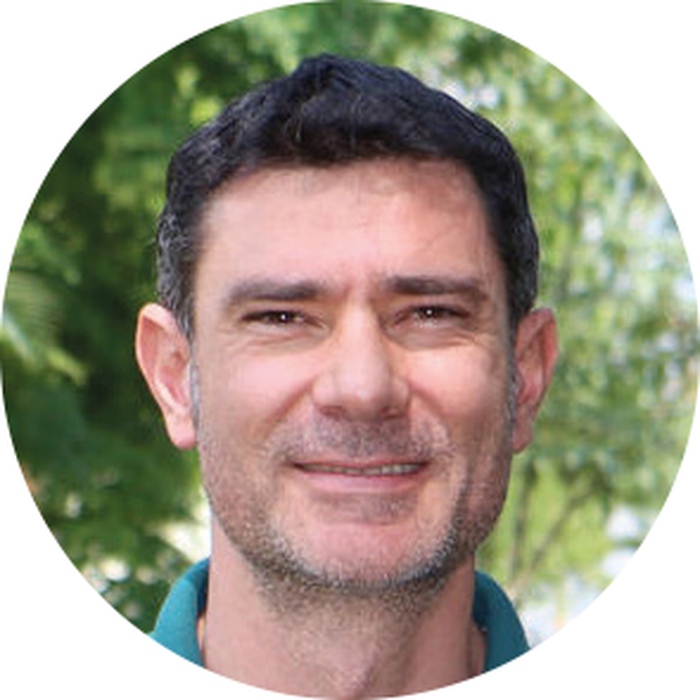 Jacob Arango
Jacob Arango
Alliance Bioversity & CIAT, Italy
Jacobo Arango is a Senior Scientist with the Tropical Forages Program at the Alliance of Bioversity International and CIAT, Lead Author of the 6th Assessment Report on mitigation of the Intergovernmental Panel on Climate Change (IPCC) and Deputy Lead of the CGIAR initiative on Livestock and Climate. His team focuses on nitrogen and carbon cycling processes in tropical forage-based crop-livestock-tree systems. He also works on improving forage quality characteristics and their impact on reducing GHG emissions from cattle. He is a molecular biologist and has a doctorate in cell biology of plants from the University of Freiburg, Germany.
 Fabien Balaguer
Fabien Balaguer
French Agroforestry Association, France
Paper Title: Agroforestry in France : Towards a transformative strategy to reach concrete change at larger scales - 28. 05. 2024
Fabien cannot remember ever wanting to do anything else but work in the farming sector. From the earliest age, he knew that this was his calling. A technical degree in biological engineering from the University of Avignon and an engineering degree in agricultural sciences from Montpellier SupAgro taught him all about agriculture, but not about trees - so he completed the training with a Masters in agroforestry from Bangor University in Wales.
Young men often want to explore the world, and so logically enough Fabien started his career as a development worker in Africa. That vividly taught him not just the challenges facing local farmers and the agronomy needed to overcome them, but illustrated beautifully how trees and forests could be key. Not just for local farmers, but for western agriculture too: to build sustainable fertility, to better manage climatic upsets, and to provide resilience to the inevitable shocks that every farmer faces. He became involved with AFAF, the French Agroforestry Association, immediately upon his return to France. He has been its Director since 2017, and grew it to its current team of over 20 people. They are hard at work developing agroforestry across the national territory, which, France being France, includes overseas territories in the tropical zones.
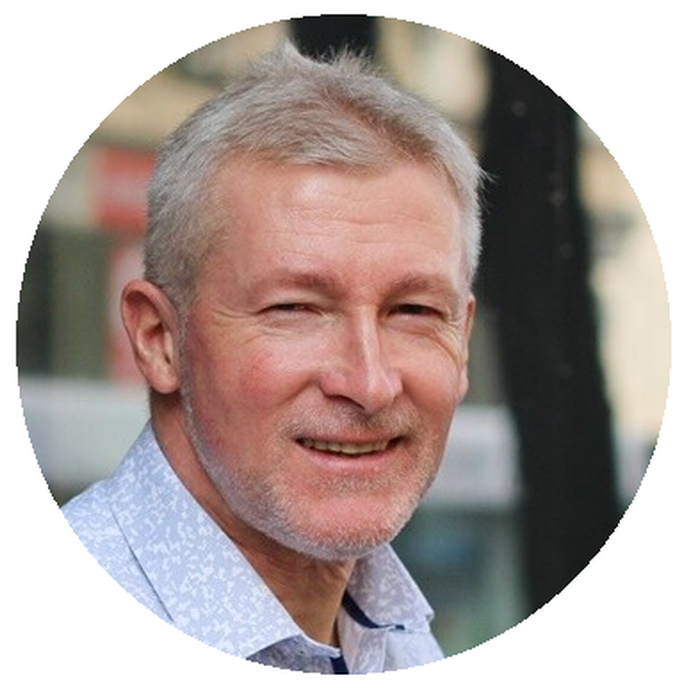 Marek Orko Vácha
Marek Orko Vácha
Paper Title: Landscape - a mirror of the soul - 28. 05. 2024
Catholic priest, head of the Institute of Medical Ethics and Humanities of the 3rd Faculty of Medicine, UK, Marek focuses in issues of evolutionary biology, medical and environmental ethics.